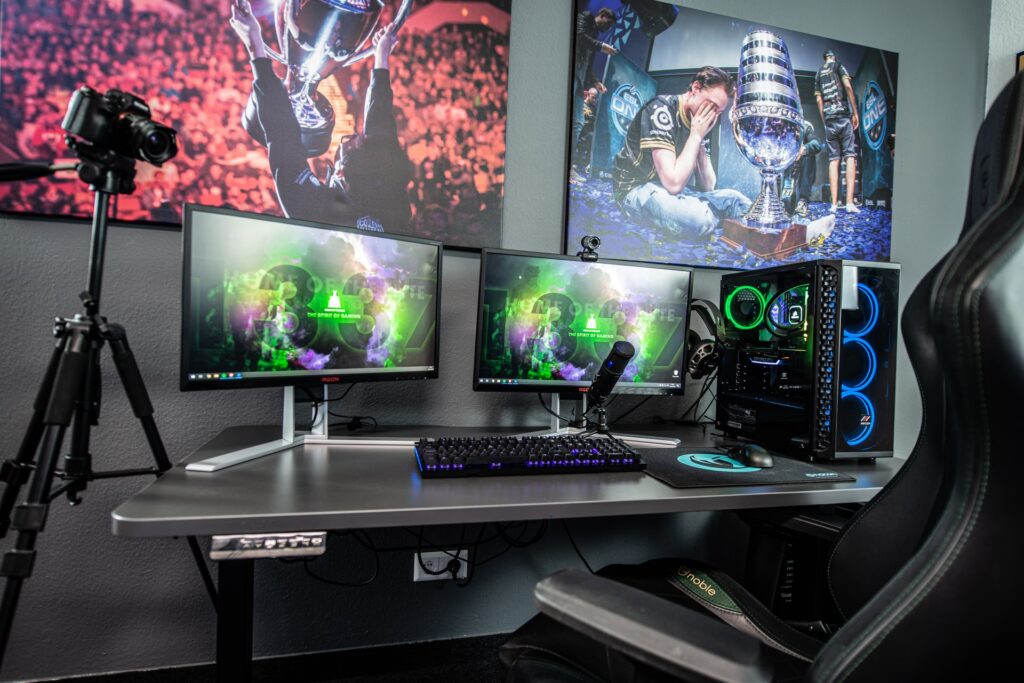By Alex Thomas
As COVID-19 causes people to stay indoors, some may see it as a pause to their normal life, but the streaming and gaming industries have become more sought after.
The industry has always been large in terms of popularity, and with COVID-19 it has skyrocketed. In the eyes of a non-streamer, streaming seems easy. Earning those first few dollars can be a hassle. There are millions of streamers, it is not easy for players to differentiate themselves from others to be noticed.
Streamer, Microsoft worker, and creator of the Toronto Twitch Community Meetup Marcel Dee used the crisis to his advantage by streaming on twitch and putting donations towards Toronto Sick Children’s Hospital. He raised a whopping $3,000 in just 24 hours.
Marcel is a prime example of people who are taking the initiative to better the community from home. Other streamers stream for an important cause, showing that more people want to help the less fortunate by starting a stream and raising money.

“I accomplished more with charities this time around with the whole COVID-19 and everything,” Marcel said, but there are a few underlying mental issues COVID-19 has on streamers and gamers. Although the industry is increasing in popularity, some streamers, Marcel included, are feeling a bit overwhelmed by not being able to see anybody. As a result, breaks are important. Being mentally unprepared to stream will make it not entertaining to watch, and viewers will object.
It comes as no surprise that games such as ‘VRChat’ have skyrocketed in popularity, as communicating with random people may just be the route for some people to get through quarantine. Interactive games help some players escape real life and enter the virtual one.
According to the Geneva-based World Economic Forum, the global video game market is worth over $159 billion as of 2020, which is almost four times more than 2019 at $43 billion, and even triple the value of the 2019 music industry.
Shaun Hatton, TV co-host for Discovery Canada’s ‘Vintage Tech Hunters,’ ad marketer, and gaming expert, explains how video games force people to stay attentive to prevent losing. He relates distractions during a movie to distractions with video games. With movies, you do not need to stay focused since missing a little bit of information is no big deal but with games, losing focus could cause key parts of the game to be missed.
“Video games keep your mind active – you’re problem-solving, you’re solving puzzles, you’re interacting with different characters, and if it’s an online game you’re actually interacting with other people. That introduces a whole other social aspect,” he said.
For everything great, there is something bad, and that also applies to the gaming industry. Although COVID-19 allows more newcomers, online gaming tournaments have become an issue, as not everybody may have a stable connection. If you disconnect during a tournament, it is counted as a DC or disconnect, which is a ban from the tournament. People have tried cheating in tournaments, and some are successful. It is easy to add mods (cheats) to one’s gameplay without people noticing, which is what makes tournament hosts skeptical of continuing in the current format.
Nintendo even complains that they will not be as efficient with game production if they have to work remotely. This is because Nintendo tends to release additional downloadable content, which causes people to pay more. During the lockdown, people want to save money and use it towards something that will give them more content for less money. For example, open-world games such as ‘Red Dead Redemption 2’ have purchasable bundles where you pay a fair price and get a whole new experience with the game such as zombies mode and a new storyline. These cheaper ways to enjoy a game are bringing in more revenue than something that Nintendo may release.
The Steam Chart for concurrent ‘Counter-Strike: Global Offensive’ players have peaked as COVID-19 rose, going from under a million players in 2019 to over a million in March 2020. The desperation to get some form of communication has caused new gamers to come into the world. It could even be said that people are now living in an online world. As for ‘VRChat,’ it is a game solely focused on talking to people and enjoying mini games with them or exploring maps. This draws people to get a virtual reality headset, and even if ‘VRChat’ is not the desired game, there are plenty of interactive games that can give players a similar experience.
Being home for so long with nothing to do is a heavy weight to carry mentally. There is a new insight into how games are portrayed and, hopefully, some parents may conclude that keeping their child away from video games may be a bad idea.
